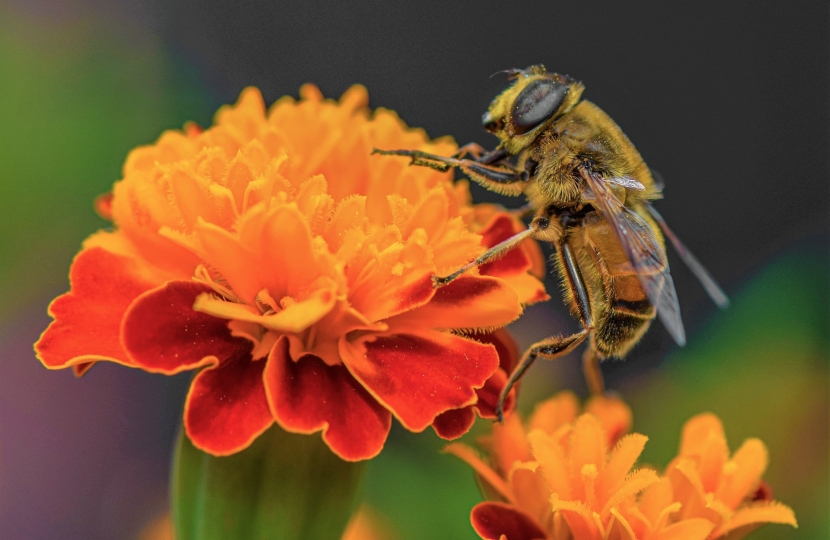
I have recently received a number of emails and letters about bees and the use of neonicotinoid pesticide treatment on sugar beet in the coming year. Having looked into the situation as a result of this correspondence, I wanted to set out what the change is and why it is taking place.
The Department for Environment, Food and Rural affairs (Defra) has approved an emergency temporary authorisation for the use of a neonicotinoid pesticide treatment on the 2022 sugar beet crop in England only due to the risk to the crop from yellows viruses.
Emerging sugar beet seedlings are vulnerable to destruction by aphid insects which have the potential to spread beet yellows virus. Sugar beet crops have been severely affected and other pesticide and organic treatments are not sufficiently effective in controlling viruses.
12 EU countries - with significant sugar production - including France, Belgium, Denmark and Spain have granted emergency authorisations in the last three years for neonicotinoid seed treatments following the EU-wide ban which was backed by the UK – coming into force. A Defra spokesperson has said, 'This decision has not been taken lightly and is based on robust scientific assessment. We evaluate the risks very carefully and only grant temporary emergency authorisations for restricted pesticides in special circumstances when strict requirements are met.'
63% of the UK’s sugar comes from domestic production of sugar beet which could be at risk if a significant amount of the national crop is infected. The initial threshold for use is 19% of the national crop according to independent modelling, the pesticide will not be used below this threshold. It is also worth bearing in mind that the maximum amount of treatment approved for use is 6% of the quantity of active substance applied on a range of crops in 2016 before neonicotinoids were prohibited.
I believe the use of these chemicals will be proportionate, controlled and are wholly necessary.


